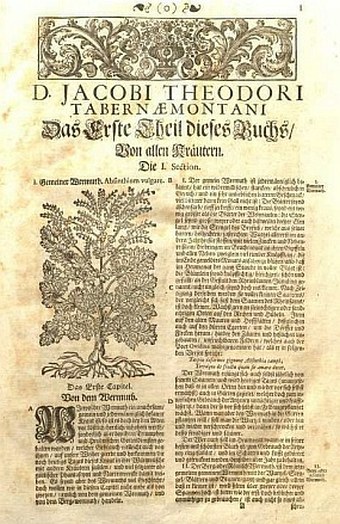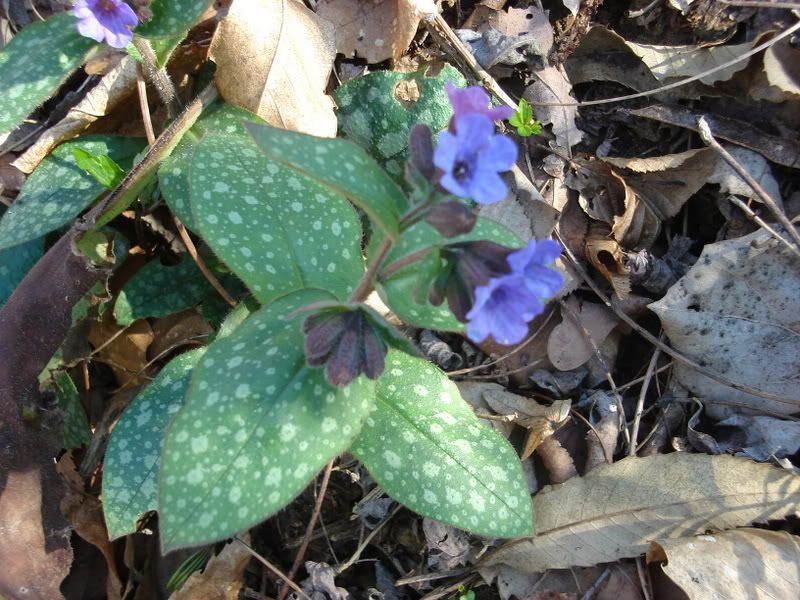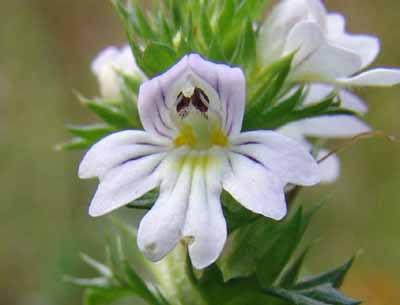Even though I may not be a herbology expert, I believe that a section on this subject should exist on my blog since it touches upon it in some aspects. I hope you won't mind my using books to guide me through the posts since their authors definitely know more than I do. :)
My idea was this: to write a post (or two on a good week) on a different plant every week. I think it's best to go in alphabetical order just so things don't get mixed up so I'm going to stick to that. :) I will talk about that plant in general, its environment, its medicinal uses as well as its hazards.
This post will serve as a short introduction to herbology so let's get started. :D
The Etymology of the Word "Herbology"
The word itself is comprised of two parts: herb+ology. The root is obviously herb, which comes from the Latin word herba which refers to grasses, plants, moss etc. As for the suffix -ology, you are familiar with it so there is no need to explain its meaning.
What is Herbology?
In short, it is the study of the medicinal uses of herbs. You are hopefully aware that there would be no modern medicine without plants because they are all made out of a concentrated amount of a certain (or several) plants which is/are reduced to a liquid or solid form through various chemical processes. The main reason why this is done is to make consumption easier and to get a faster reaction from the patient (of course, with certain additives).
 |
Jakob Theodorus
"Tabernaemontus" -
Neuwe Kreuterbuch
(1588)
|
In modern times where chemical and synthetic drugs are used much more, simple herbs may seem ineffective and old-fashioned. Phytotherapy (healing using plants) has become almost a neanderthalic method of healing. Despite this, we see that an interest for herbology and medications on a "natural basis" has grown and still keeps growing. Maybe this is because people are beginning to understand that they are poisoning their bodies with chemicals? Maybe we have all had enough of polluted air and unhealthy food so we are attempting to get our organisms back in tune with nature? You can answer those questions. :) But one fact does remain; WHO (the World Health Organization) has started paying more and more attention to the researching of medicinal uses of herbs. Also, the number of people who use herbs as a primary method of healing keeps growing from day to day.
I also have to emphasize that phytotherapy isn't the only healing method available. On the contrary, I believe it should be understood as a supplement to modern medicine. If doctors of medicine, village grannies (believe it or not, they are the best herbologists you can find) and energy healers collaborated, miracles could happen! The only problem is that they don't want to collaborate. :/ Because of this, whenever I find myself in a health crisis, I first try to use natural methods to prevent/heal the illness, but if I believe it to be serious then I first consult my physician. Only if no natural method works, I turn to synthetic drugs. But hey, I guess that has to be tolerated every once in a while too.
Notice how I said "prevent/heal" an illness. What I wanted to say with this is that herbology can also be used to prevent some diseases as well as heal them. :) You are familiar with the saying: "Prevention is better than cure", aren't you?
What about the Term "Drugs"?
 |
| Liverwort, Anemone Hepatica L. |
In herbology, the word "drugs" refers to plants which are prepared in a certain way. Usually, plants (or rather specific parts of a plant) are dried or prepared in some other way in order to get something out of that derivative/drug, i.e. the drug is used to produce tinctures, ointments, teas and so on.
The Problematics of Combining Herbs
Each drug is made up of active matter (effectors) and supporting matter (coeffectors such as flavonoids, saponins, mucilage, electrolytes etc.). This matter is important to the effectors because they (the effectors) use them as solvents, preservatives, stabilizers and sometimes even as antioxidants. It is obvious that one does not exist without the other. For this reason, it is important to look at a plant as a whole and not as separated sections.
 | |
| Lungwort (got its name because of its leaves that remind us of the texture of the lungs) Pulmonaria Officinalis L. |
Traditional preparations are usually teas and alcoholic extracts such as tinctures and others. When they are made, several plants can be used but each one of them usually has a different source material. For example, some medicinal plants may contain toxic active matter. Everything above this is complicated chemistry to me so I would rather not go into any more detail but I hope that you understood why you can't just combine everything you want.
These kinds of dilemmas can be avoided with synthetic drugs because all they are all standardized, that is, each drug is modified to have an exact, specific amount of each ingredient.
Unfortunately, not enough experiments have been conducted on the subject of mutual effects of plants (at least for now).
Plants among Common Folk
 |
| Eyebright Euphrasia Officinalis |
Before I begin, I have to say that I would never use the term "common folk" in a pejorative sense. I include myself in this category and am very proud of it. But that isn't today's topic so let us proceed.
Even though much could be learnt through oral tradition, the things you could learn weren't always right. It simply came to it that certain plants began to be used to cure specific organs which they resembled in one way or another. An example of this would be the leaf of a plant called liverwort began to be used to cure diseases of the liver, the leaf of the lungwort to cure lung diseases, eyebright (the flowers of which resemble eyes) for eye diseases (even though it turned out this plant really can help cure eye diseases) etc.
I plan to add information on plants, remedies and such even to this introductory, general section in due time, but I will also add references for you to have a look at. :)
I truly recommend the following websites and books:
Cunningham, Scott - The Encyclopedia of Magical Herbs (additional reading, not strictly herbology)
Mrs Grieve - A Modern Herbal
Hoffmann, David - Medicinal Herbalism
-II- - The Holistic Herbal
Marcin, Marietta Marshall - The Complete Book of Herbal Teas
Petrušić, Tomislav - Ayurveda (I don't believe a translation exists so I recommend any book on the topic by Vasant Lad)
Launert, Edmund - Edible and Medicinal Plants
Ward, Harold - Herbal Manual
Weil, Andrew - Guide to Herbal Medicines
Mrs Grieve - A Modern Herbal
Hoffmann, David - Medicinal Herbalism
-II- - The Holistic Herbal
Marcin, Marietta Marshall - The Complete Book of Herbal Teas
Petrušić, Tomislav - Ayurveda (I don't believe a translation exists so I recommend any book on the topic by Vasant Lad)
Launert, Edmund - Edible and Medicinal Plants
Ward, Harold - Herbal Manual
Weil, Andrew - Guide to Herbal Medicines





YOU ARE INVITED TO FOLLOW MY CHRISTIAN BLOG
OdgovoriIzbrišiThank you very much for the invite. I'll be sure to have a look. :)
Izbriši